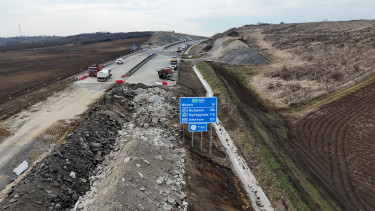Hungary to discontinue Kurzarbeit scheme next week

Scheme discontinued
Applications for wage subsidies may be submitted until next Monday, László György, state secretary in charge of economic policy and regulation at the Ministry of Innovation and Technology, said on Monday. The Hungarian government has extended support for more than 226,000 employees through the Kurzarbeit scheme, but the emphasis during the restarting of the economy will shift to reinforcing jobs and creating new ones, and the government does not plan to extend the current scheme, he said.
The announcement came as no surprise as the scheme was set to run for a definite period. However, representatives of both employers and employees have requested that the government keep the scheme running. As Hungary’s Kurzarbeit scheme has contributed to saving more than 200,000 jobs during the coronavirus crisis, professional organisations would lie for the subsidies to remain available in the present fragile economic environment so that a further rise in unemployment could be prevented.

At present, 205,514 employers are involved in the Kurzarbeit scheme, slightly more than a week earlier, while the number of businesses taking the subsidy has not changed. “There is still funding but there is no demand for the programme on the part of businesses,” György said. Those who have entered the scheme earlier will be paid the subsidy for the months approved, but no new applications will be accepted after next Monday.
Numbers must be closely tracked
Portfolio has asked employer representatives if demand for the subsidy was really waning. “The Kurzarbeit scheme was definitely useful and successful, but we are not at the level of employment we would like to be at the moment, and the future is also very uncertain,” Ferenc Rolek, Vice President of the Confederation of Hungarian Employers and Industrialists (MGYOSZ), told Portfolio.
“We do not know what a second wave will bring in Hungary, and the European development of the pandemic situation will also be important,” Rolek said, pointing out that lots of Hungarian businesses were dependent on the European economic environment due to exports.
The economic slump could recur in the autumn, which is why the Kurzarbeit scheme should be extended,
Rolek said. The MGYOSZ has called upon the government to add three months to the wage subsidy scheme, he added. If the economic situation takes a turn for the worse, the scheme will have to be reintroduced in a hurry.
There are businesses that will continue to require wage subsidies, and entire industries will have to be given support again. Domestic tourism helped out the tourism industry in the summer, but the autumn ad winter months will again be worse as there will be no foreign visitors, Rolek said. Aside from tourism, businesses producing for Western Europe or other export markets will also be in trouble, and unemployment figures will have to be watched very closely because any required measures will have to be taken very swiftly, he added.
Unemployment could rise
“We believe that Hungary’s Kurzarbeit scheme is a useful form of subsidy that has helped protect jobs, which is why it would be necessary to keep it running until the end of the year,” László Perlusz, Secretary General of the National Association of Entrepreneurs (VOSZ), told Portfolio.
Both analysts and economic policy makers expected the economic rebound to be stronger, but the VOSZ has previously said we should not expect a V-shaped recovery, Perlusz said. Extending wage subsidies would be of key importance in helping businesses retain employees in the current difficult situation, he added.
We would like the Kurzarbeit scheme and job creation grants to be maintained in some form until at least the end of the year,
Perlusz said.
Businesses have not depleted the budget of the programme, so the lack of funding could not be a reason not to keep it running, which is why the VOSZ called upon the Ministry of Innovation and Technology to continue the Kurzarbeit scheme, Perlusz said.
Should subsidies be cut or discontinued altogether, businesses will find themselves in an even more difficult situation, and when making the decision whether to keep or lay off employees, the lack of support could make them choose the latter, Perlusz said. “We trust that the government will listen to us and react to market developments. If they see that further major turbulence is ahead, they will make their move again,” Perlusz said, adding that not waiting for unemployment to begin rising again and instead keeping the scheme running would be preferable.
Speaking on Monday, László György said a white book for businesses drafted jointly with various chambers and business interest groups will be released next Monday, containing examples of measures businesses could take during the second wave in order to keep up operations.
Cover photo: Getty Images








